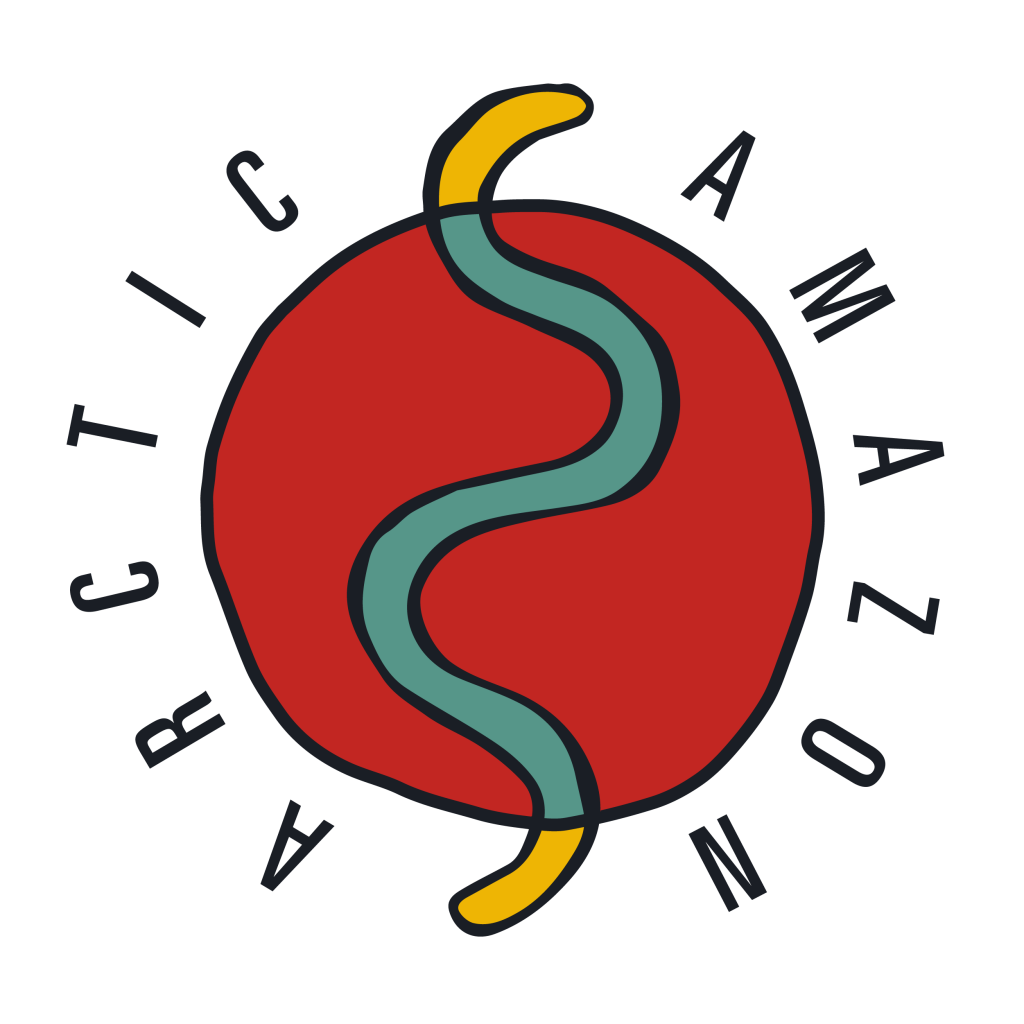Wapatah Centre is excited to share that the Arctic Amazon: Networks of Global Indigeneity publication has been highlighted at LitFestAlberta as part of the online panel, “Writing on Climate.”
LitFestAlberta is Canada’s first and only nonfiction festival and its primary aim is to create vital connections between people and ideas. The “Writing on Climate” Panel included five extraordinary authors who read from their latest works inspired by and interrogating one of the most pressing issues of our time – our changing (and changed) climate. In addition to Gerald McMaster and Nina Vincent discussing the impact of Arctic/Amazon: Networks of Global Indigeneity, the panel also included Alice Major (Knife on Snow), Tim Lilburn (Numinous Seditions), and Martin Tweedale (Making Wonderful).
Throughout the year, LitFestAlberta festival scouts authors and host writers who keep reading and talking about what matters most locally and globally. LitFest is also a space where writers share true stories. Every October, authors are invited to the stage to tell what they know and challenge the audience with their ideas around a diversity of topics, including climate change, colonization, gender, misogyny, and trauma.
Panelist and Arctic/ Amazon Co-Author | Gerald McMaster
Gerald McMaster, O.C., is one of Canada’s most revered and esteemed academics. He is a curator, artist and author, and is currently professor and Tier 1 Canada Research Chair of Indigenous Visual Culture and Curatorial Practice at OCAD University, where he leads a team of researchers at the Wapatah Centre for Indigenous Visual Knowledge. McMaster served as the curator for the 1995 Venice Biennale, artistic director of the 2012 Biennale of Sydney and curator for the 2018 Venice Architecture Biennale. He is the recipient of the OCAD University Award for Distinguished Research, Scholarship & Creative Activity (2021) appointed Senior Fellow to Massey College, University of Toronto (2021), and awarded Governor General’s Awards Award for Outstanding Contribution (2022). He is nehiyaw (Plains Cree) and a citizen of the Siksika First Nation.
Panelist and Arctic/ Amazon Co-Author | Nina Vincent
Nina Vincent is a Brazilian anthropologist, researcher, professor, independent curator and currently works at the National Institute of Historical and Artistic Heritage (IPHAN), where she works close to communities to preserve intangible heritage and Brazilian popular/traditional culture. She has a Ph.D. in Sociology and Anthropology from the Federal University of Rio de Janeiro (UFRJ), and a Master’s in Anthropology and a bachelor’s degree in social sciences from UFRJ. Her research focuses on Indigenous visual material culture, museology and curatorial practice. In 2015, Garamond Publishing published her book Paris, Maori: the museum and its others—native curatorship at the Quai Branly. Vincent is co-researching the Arctic / Amazon Project with Dr. Gerald McMaster, exploring intersections of historical and contemporary art production and cultural perceptions of climate change in the two regions.
Panelist | Alice Major
Alice Major is an award-winning essayist, author, and poet. A supporter of the arts and writing community, Alice founded the Edmonton Poetry Festival, was the first poet laureate for the City of Edmonton (2005-7), and in the past has served as president for both the League of Canadian Poets and Writers Guild of Alberta, and a chair of the Edmonton Arts Council.
Panelist | Tim Lilburn
Tim Lilburn is one of the world’s leading poets and essayists on poetics. His works—including nine books of poetry and two essay collections—help us interpret our relationship to landscapes and their ecologies, and offer paths forward to living ethically within these relationships.
Panelist | Martin Tweedale
Martin M. Tweedale holds a BA from Princeton and a PhD from UCLA, where he specialized in medieval and ancient Western philosophy. He has published extensively in these areas as well as metaphysics. Before coming to the University of Alberta, he taught at the University of Pittsburgh, UCLA, and the University of Auckland in New Zealand. A resident of Edmonton, he is a life-long supporter of efforts to preserve the natural environment.
Arctic/Amazon: Networks of Global Indigeneity offers a conversation between Indigenous Peoples of two regions in this time of political and environmental upheaval. Both regions are environmentally sensitive areas that have become hot spots in the debates circling around climate change and have long been contact zones between Indigenous Peoples and outsiders — zones of meeting and clashing, of contradictions and entanglement. Opening with an Epistolary Exchange between the editors, Arctic/Amazon then widens to include essays by 12 Indigenous artists, curators, and knowledge-keepers about the integration of spirituality, ancestral respect, traditional knowledges, and political critique in artistic practice and more than 100 image reproductions and installation shots. The result is an extraordinary conversation about life, artistic practise, and geopolitical realities faced by Indigenous peoples in regions at risk.


